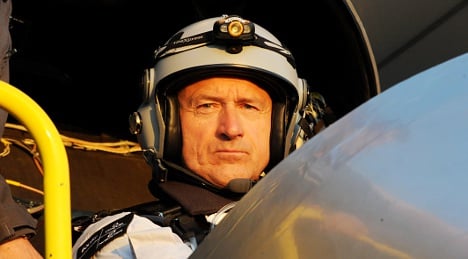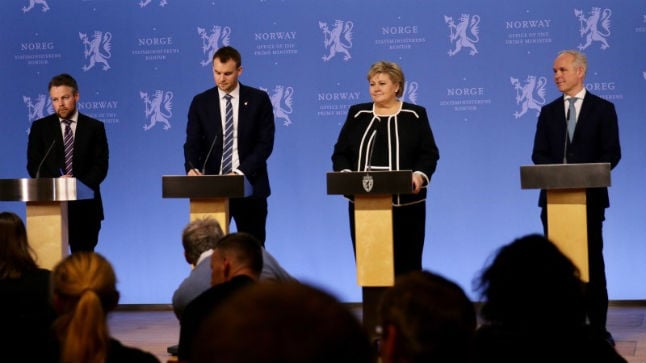Sion-based company Hangar 55 (H55) has been awarded the first-round funding by US venture capital firm NanoDimension, company co-founder André Borschberg announced on Twitter on Tuesday.
An engineer and former fighter pilot, Borschberg also co-founded the Solar Impulse project which led to the first-ever round-the-world flight by a solar airplane – a multi-stage journey completed from 2015 to 2016 that garnered international headlines.
We are very happy to announce that H55 just signed a first financing round with Nanodimension, a silicon Valley based VC firm which gives us the mean to bring our electric propulsion technologies to the aviation industry https://t.co/QbfWSjYMnn pic.twitter.com/lWQPss3OPk
— H55 (@H55aEro) February 20, 2018
With his new project, Borschberg – along with fellow H55 travellers Sebastien Demont and Gregory Blatt – now hopes to develop and certify clean, safe and quiet electric propulsion systems that can be incorporated into other planes.
“With Solar Impulse the message was about perpetual energy – the ability to fly around the world using only renewable solar energy. H55, which has inherited the know-how acquired with Solar Impulse, will concentrate on the electrification of aircraft, what ever the source of that electricity,” Borschberg told Swiss business magazine Bilan.
H55 unveiled its first aircraft ‘aEro1’ in 2017: a relatively simple one-seat German-made Silence Twister aerobatic flyer fitted with batteries. It could fly for just an hour before those batteries needed charging. A newer version clocked up two hours, at a flying cost of just 3 Swiss francs an hour.
H55 – taking electric propulsion in the air a step further ?️ https://t.co/b242zeTF0V #solarimpulse #legacy #aviation pic.twitter.com/9ns7xIcxXe
— SOLAR IMPULSE (@solarimpulse) April 21, 2017
But as Borschberg explained to the science magazine Wired at the time aEro1 was unveiled, the goal is not to try and match Uber and its planned flying cars in terms of excitement.
Instead, the idea is to think small and “prove the safety” of the aviation systems developed so that they get the all-important nod from regulators, allowing new craft, for example, to be allowed to fly over populated areas.
And despite the inherit problems with battery-powered flight – a kilo of aviation fuel contains 30 times more energy than a battery equivalent –Borschberg believes the moment has come to move to electric aircraft.
This is not because he believes batteries are about to suddenly become a lot better, but because of the advantages electric flight offers in terms of both reduced CO2 emissions and in terms of allowing – at some stage in the future – for a complete rethink of airplane design.
Talking to Bilan, Borschberg also highlighted the potential safety benefits and lower maintenance requirements that could derive from developing planes with fewer engines than seen on current aircraft.



 Please whitelist us to continue reading.
Please whitelist us to continue reading.